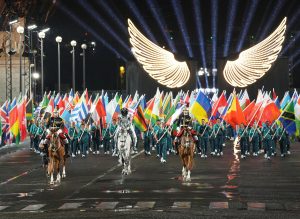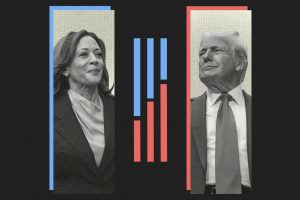The 60th anniversary of the assassination of John F. Kennedy has generated considerable media attention around the world, renewing speculation once again about a devastating event that is often said to have marked the end of America’s “Age of Innocence”.
In Greece, an article in the Athens daily “Ta Nea” touched on a Greek-American angle this week. Relating to the period before the sniper’s bullet killed the US President in Dallas on Nov. 22, 1963, it adds to the still ubiquitous conspiracy theories revolving around “CIA involvement” and a “Cuban connection”.
According to the article, the Biden administration declined to declassify 44 confidential documents relating to the activities of Greek-American CIA agent George E. Joannides several months ago on the eve of a previous declassification deadline.
With more than a decade’s experience in the American intelligence service, the 40-year-old Joannides used a Miami law firm as a front to finance the “Directorio Revolucionario Estudantil”, an anti-Castro organization run by Cuban exiles in south Florida, from 1962 to 1963. Under an assumed name, Joannides reportedly gave the group as much as 25,000 dollars a month to collect intelligence about the Castro regime.
According to most accounts in the decades since, he served as a high-ranking operative in the CIA’s top-secret intelligence-gathering station in south Miami throughout the 1960s.
It was in this post that the Athens-born, US-raised Joannides is alleged to have directed Cuban dissidents to claim Lee Harvey Oswald had close ties to Fidel Castro and that the one-time US Marine had defected to and lived in the Soviet Union—a fact that was subsequently confirmed.
The extensive and sensational investigation into the Kennedy assassination would reveal Oswald’s contacts with Cuban dissidents some four months before the fateful morning in Dallas, Texas—Cuban anti-communists ostensibly controlled by Joannides.
Two questions that continue to bedevil researchers and amateur “Kennedy sleuths” to this day are, first, how Oswald had managed to stay off the radar of the CIA, which controlled the anti-Castro groups in south Florida, before the assassination. And, second, whether one of history’s most notorious assassins was actually under the Agency’s direction at some point, and what he did for them.
Officially, the US administration—with Lyndon B. Johnson now in the Oval Office—categorically denied that the CIA was linked to Oswald in any way.
Nevertheless, questions remained. The conspiracy theories were given a new lease of life in 1977 when, a year before his retirement, Joannides was appointed to serve as the spy agency’s liaison to the US House Select Committee on Assassinations—a position which, critics say, gave him control over the flow of information and disclosures.



